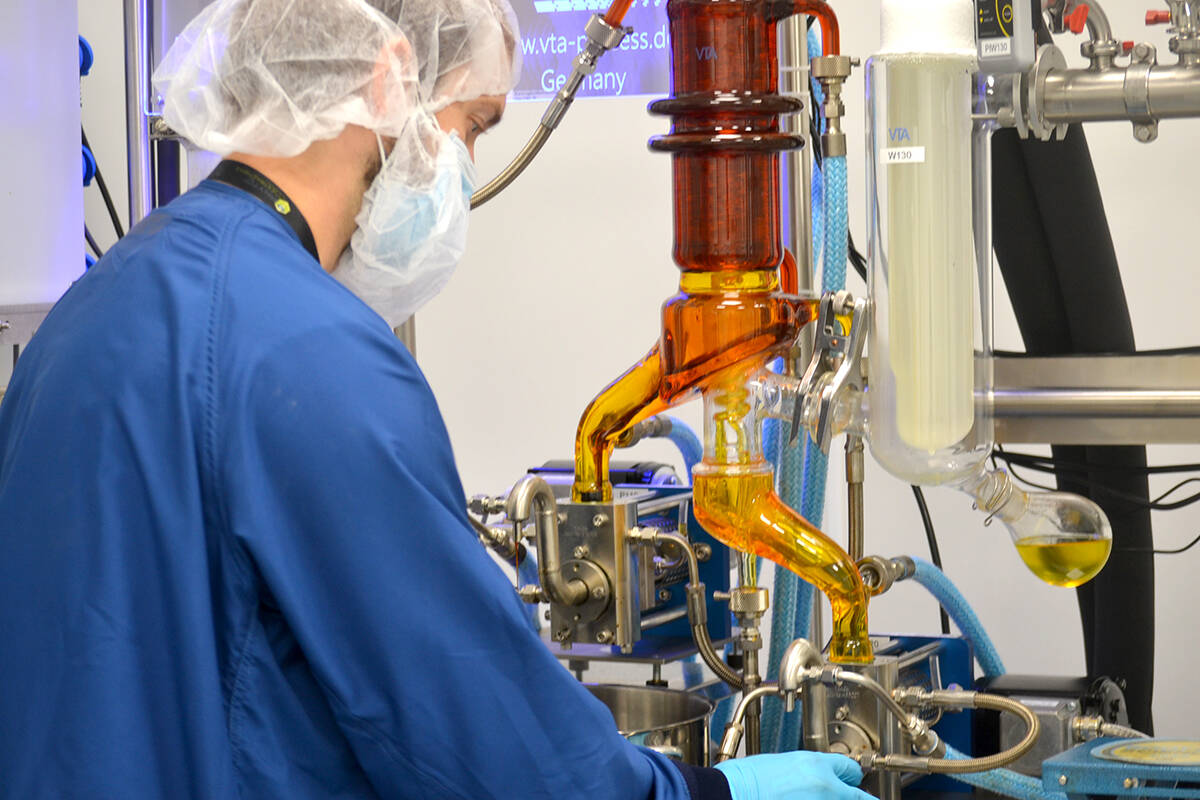A Langley-based cannabis company’s announcement that it has received federal government permission to produce up to 250 grams of cocaine caused a political furor in B.C. on Thursday, but the company won’t be selling it to the public.
A press release issued Feb. 22 said that last year, Adastra Holdings received an amendment to its Controlled Drug and Substance Dealer’s Licence that allowed it to “interact with” up to 250 grams of cocaine, and to import coca leaves to manufacture and synthesize cocaine.
The licence was originally granted last year, and allowed Adastra to produce psilocybin and psilocin, the substances found in “magic mushrooms.” Those types of psychoactive drugs are being increasingly used in therapeutic contexts, largely in ongoing studies.
Although the licence was issued by Health Canada, a federal agency, the press release references the recent decriminalization in B.C. of small amounts of hard drugs for personal use. The decriminalization, authorized by Ottawa, is aimed at reducing overdose deaths, and does not legalize the sale or production of cocaine, heroin, or fentanyl.
“Harm reduction is a critically important and mainstream topic, and we are staying at the forefront of drug regulations across the board,” said Michael Forbes, CEO of Adastra said in the release. “We proactively pursued the amendment to our Dealer’s Licence to include cocaine back in December 2022. We will evaluate how the commercialization of this substance fits in with our business model at Adastra in an effort to position ourselves to support the demand for a safe supply of cocaine.”
Cloverdale-Langley City MP John Aldag spoke with officials at Health Canada, and confirmed that the cocaine is not intended for commercial sale, but for research purposes.
“They cannot sell the products directly to the general public,” he said.
A statement from Health Canada on Friday, March 3 clarified the scope of Adastra’s licence.
“Adastra Labs is licensed by Health Canada for this controlled substance for scientific and medical purposes only,” the statement said. They can only sell to other labs that have identical licences, pharmacists, hospitals, or holders of a special government exemption for research purposes.
“Health Canada has contacted the company to reiterate the very narrow parameters of their licence,” the statement said. “If the strict requirements are not being followed, Health Canada will not hesitate to take action, which may include revoking the licence.”
READ MORE: Langley cannabis firm applies to produce psychedelic drugs for therapy
The announcement, particularly Forbes’ suggestion that cocaine production would be commercialized, drew swift reaction from multiple B.C. politicians.
NDP Premier David Eby was asked about the announcement and how it fit into the government’s approach to mental health and addictions.
“The short answer is that I was astonished by this announcement,” Eby said at a press conference on Thursday.
“It is not part of our provincial plan,” Eby continued. “If Health Canada did in fact do this, they did it no only without engaging with the province, but without notice to us.”
He said they would get answers from Health Canada about the issue.
BC Liberal leader Kevin Falcon also raised the issue during Thursday morning’s Question Period in the Legislature, asking “what on Earth is going on here?”
“Now, since the NDP decriminalized hard drugs like cocaine, fentanyl and methamphetamine, this company’s stock price has doubled,” Falcon said later in the debate. “But let’s be really clear here. Cocaine isn’t prescribed. It isn’t safe. This is wrong. Commercializing cocaine as a business opportunity amounts to legalizing cocaine trafficking, full stop. So why has this Premier allowed for the commercialization of cocaine?”
Solicitor General Mike Farnworth replied for the government, defending the new regulations that decriminalize small amounts of hard drugs for personal use, while also indicating that the NDP didn’t condone or plan to authorize commercial sales of cocaine.
“This is not and never has been about legalizing cocaine or encouraging it for commercial distribution, despite whatever the member’s reading from…” Farnworth said, before noise in the Legislature cut him off.
Later, responding to Liberal MLA Elenore Sturko, Farnworth said whatever licence Adastra had was not done in consultation with the province, and decriminalization aside, cocaine remains an illegal substance.
“We do not support the commercialization of cocaine in British Columbia or the country,” Farnworth said. “If the federal government has granted a licence, then they should be taking it up with the federal government. They’re the ones who made that licence.”
Licences to produce psychoactive drugs like psylocibin have only recently been granted as the drugs are being increasingly used in a therapeutic context. They are not for sale commercially like cannabis or alcohol.
Have a story tip? Email: matthew.claxton@langleyadvancetimes.com

